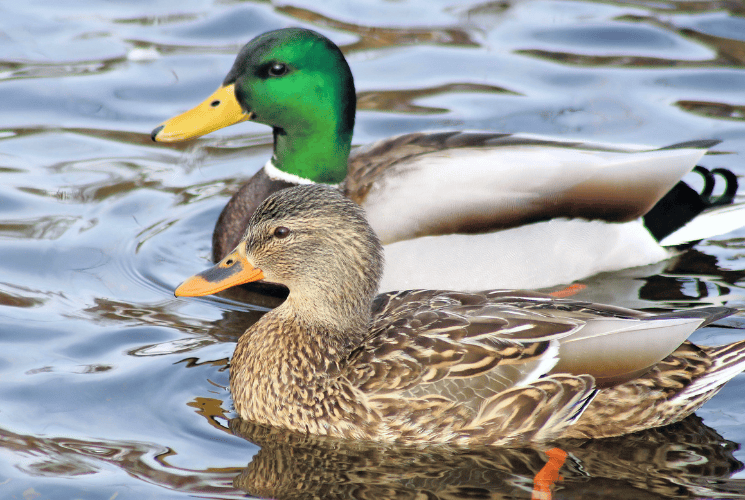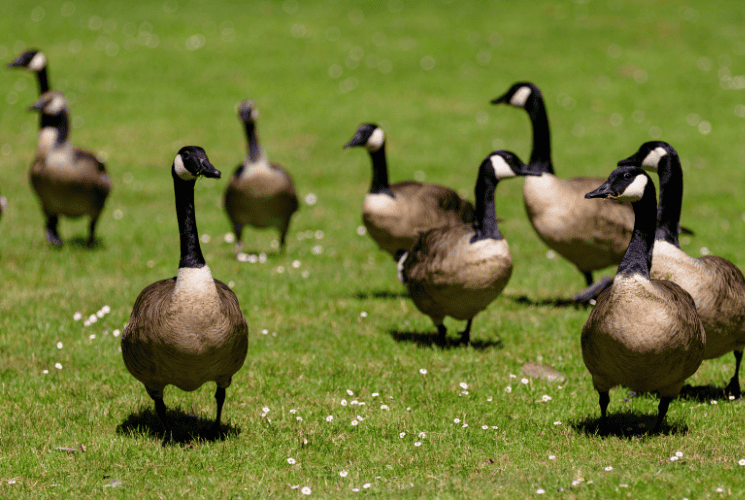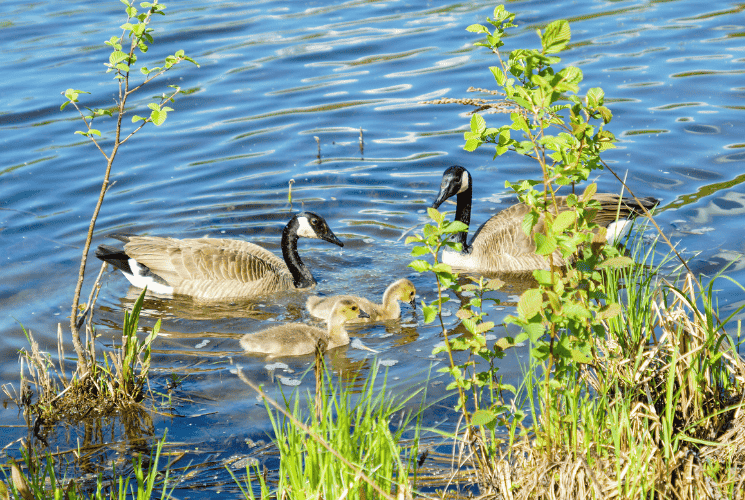6 Reasons Why You Shouldn’t Feed Waterfowl at Smith Mountain Lake
This page may contain affiliate links. If you click and purchase, we may earn a small commission at no extra cost to you. Read our full disclosure policy.
Living and recreating at Smith Mountain Lake provides numerous opportunities to enjoy a variety of wildlife, including ducks and geese that paddle by docks and gather in yards.
You may be tempted to feed these feathered friends. However, are you aware there is an ordinance that prohibits the feeding of migratory and non-migratory waterfowl within 500 feet of the shores of SML?
This ordinance is in place for compelling reasons. Feeding the waterfowl tarnishes the water and diminishes the recreational quality of our lake, while also putting the birds themselves at risk.

1. Negatively Impacts Water Quality
When you feed waterfowl, water quality is negatively impacted due to high levels of fecal coliform and nitrogen found in their feces. Duck and geese feces can contain E.coli, Salmonella and other organisms that can cause serious illness and may contribute to the development of harmful algae blooms (HABs) at SML.
2. Spreads Harmful Germs
Feeding areas become breeding grounds for germs and bacteria, spreading life-threatening diseases like avian cholera, duck plague and avian botulism. These deadly diseases can decimate entire populations of waterfowl.
3. Damages Property
Feeding also lures waterfowl to the feeding area, leaving a big nasty mess on lawns and docks as well as neighboring properties. The waterfowl can destroy a green lawn from the grazing, trampling and defecating and can leave an unhealthy environment for pets and other wildlife. This, in turn, can lead to soil compaction, shoreline erosion and damage to vegetation.

4. Negatively Impacts Other Species
You’ve likely seen large flocks of geese and ducks roaming in search of a place to gather and graze. Some flocks of geese can number 40 or more.
Did you know a flock of 20 geese produces about 30 pounds of feces per day? Over time, nutrients from these droppings can disrupt aquatic life in the lake, reducing opportunities for fishing and other recreation.
These flocks also attract predators like foxes, raccoons, skunks, and opossums, all of which can carry rabies.

5. Contributes to Dependence on Humans
You might believe you’re helping the waterfowl by feeding them, but it actually harms them by making them dependent on humans and losing their ability to forage for nutritionally adequate food on their own. Feeding can also lead to overpopulation, environmental contamination and an unhealthy habitat for both people and wildlife.
6. It’s Against the Law
As noted above, a local ordinance bans the feeding of all waterfowl, both migratory and non-migratory, within 500 feet of Smith Mountain Lake’s shores. In all three counties that border SML (Bedford, Franklin and Pittsylvania), those who violate the ordinance are subject to a civil fine of up to $50.

Enjoy the waterfowl at Smith Mountain Lake from a distance and let them live a natural, healthier life in the wild.
Learn more about how you can contribute to a healthy lake by visiting the Smith Mountain Lake Association online and discovering the benefits of membership.

Joanne Houpt
GUEST AUTHOR
Joanne is a Smith Mountain Lake Association board member and chairs the organization’s Septic Education and Submerged Aquatic Vegetation committees. Before retiring to the lake in 2010, she worked in operations, maintenance and right-of-ways in the natural gas pipeline industry.


